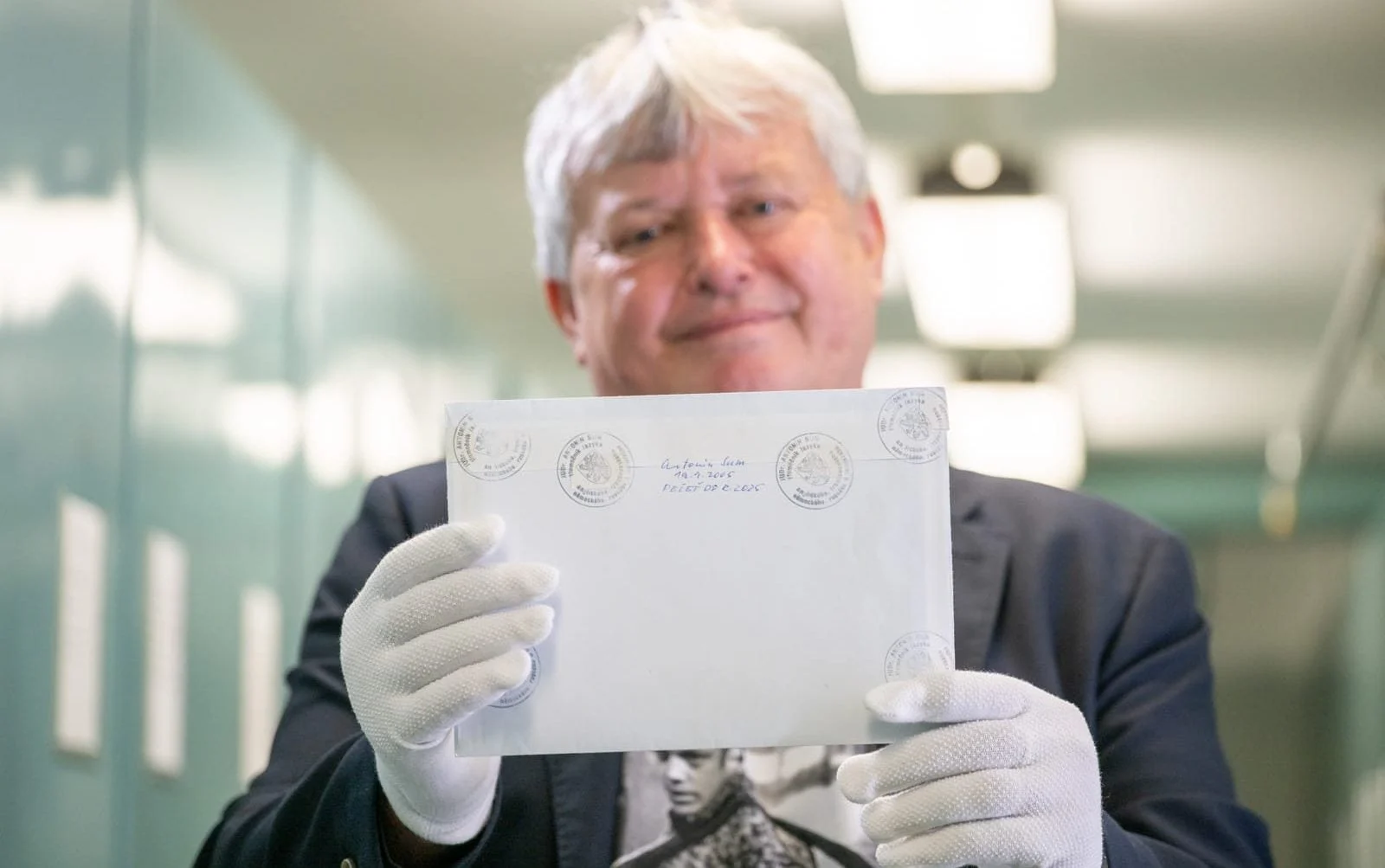Will it warn of Hitler or Stalin? Czech president’s secret letter to be unsealed after 88 years
By James Crisp
Copyright yahoo

On Friday morning, the Czech president will stand in his summer palace and open an envelope that has been sealed for 88 years.
Dictated by Tomáš Garrigue Masaryk, the founder of Czechoslovakia, shortly before his death in 1937, the letter inside has survived the Nazi invasion in the Second World War and the Soviet occupation.
It was smuggled to London and eventually entrusted to the Czech national archive in 2005 which was given strict instructions not to open it for 20 years, or until Sept 19 2025.
With that day almost here, expectation is mounting.
One leading tabloid is featuring a rocket launch-style countdown clock to the big moment on its website and publishing readers’ best guesses as to what the letter contains.
Masaryk was one of the first European statesmen to raise the alarm about the rise to power of Adolf Hitler.
Nazi Germany would annex the Sudetenland in 1938, a year after his death, before completely occupying Czechoslovakia.
With the historical context in mind, Czechs have been sharing theories about what words of wisdom the final missive could contain, with suggestions including “watch out for Hitler” or “watch out for Stalin and the communists”.
Surveys are running asking what might be in the letter, with suggestions ranging from a philosophical treatise, to a novel or even the unlikely confession that he was the secret son of Austro-Hungarian Emperor Franz Joseph I.
Schoolchildren told local media they thought the envelope could be a warning to watch out for Russia, which invaded in 1968 to crush the “Prague Spring” and is once again a belligerent neighbour after the invasion of Ukraine.
Others predicted the letter would be the solemn congratulation that if someone was reading the letter, his country was free of totalitarian rule.
Some suggested it could be a prediction of and call for the creation of the European Union.
But there is, of course, no guarantee that the envelope will contain a dire prediction of the future or even a message to the generations to come.
It could easily be something concerning one of his contemporaries, with the order not to open it until 2025 having been given to ensure the information is not revealed in their lifetime.
One theory is that the message might simply say the whole envelope shenanigans was a big hoax, with Masaryk having a last laugh at everybody’s expense.
That is seen as unlikely because although Masaryk remains very famous for his fight for democracy, he was never known for his sense of humour.
“I would rule out a recipe for blueberry pie,” one historian said.
The letter was dictated to Masaryk’s son Jan, the then-Czech ambassador to the UK and later foreign minister. When war broke out, Jan took the envelope with him.
It was the start of a journey that took the letter through London, Scotland and France before it was returned to a liberated Czechoslovakia in 1945.
There was more intrigue to come. Jan died in mysterious circumstances in 1948, leaving many documents, including the letter in his apartment.
It was claimed he killed himself but at the time it was widely assumed he had been murdered by the nascent communist government: he was found dead dressed only in his pyjamas in the courtyard of the foreign ministry, below his bedroom window.
His secretary Antonín Sum took possession of the letter and arranged for it to be smuggled to the West once again with the help of Western diplomats.
Sum was arrested and tried for treason in 1950 by the newly installed communist regime. He served 12 years of a 22-year sentence.
After the Velvet Revolution in 1989 ended, nearly 40 years of communist rule, Sum regained possession of the letter
He died in 2006 after donating the letter to the national archive on Sept 19 2005 with the condition that it was not opened for 20 years.
Petr Pavel, the current Czech president, will be among dignitaries gathered at Friday’s ceremony at the presidential summer residence in Lány, where Masaryk died.
The stakes – and potential for massive disappointment – are high.
Dagmar Hájková, a historian from the Masaryk Institute, said it’s possible the envelope could contain a forgery or the handwriting illegible.
“We assume that it is from the last days of President Tomáš Garrigue Masaryk,” archivist Jiří Křesťan told local media.
“His son Jan would have been noting down some thoughts dictated to him by the president, at a time when he was already worried that he would soon leave this world.”
No one did more than Masaryk to found Czechoslovakia, which has now split into the Czech Republic and Slovakia.
Born in Moravia, which was then part of Austria-Hungary, he became a professor of philosophy.
By the outbreak of the First World War, he was a believer in the cause of Czech and Slovak independence.
He established the Czechoslovak Legion, which fought against the central powers.
In 1918, he travelled to the United States and got the support of Woodrow Wilson, then the president, to establish an independent Czechoslovakia.
Masaryk took office as the first head of state of the new country, which he led to a period of democratic stability.
A feminist and foe of anti-Semitism, he would not leave office until 1935, when he stepped down for reasons of ill health before dying two years later.
“Tomáš Garrigue Masaryk was a deeply political person,” Mr Křesťan said.
“So I think there will be reflections of the political situation within the republic at that time.”



